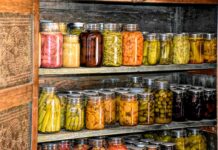One of the classes I teach every year is the quality assurance training for 4-H students to prepare for fair season. While I probably would not have too many 4-H students who agree with me on this part (it is mandatory training for them each year), I will say it is one of my favorite classes that I teach.
Part of the reason I enjoy it is that I believe 4-H can positively impact lives. The other reason is that it allows me to use my veterinary background to engage the students.
While the good production practices I teach vary from year to year, I always make sure to engage the students with some practical veterinary knowledge so that they can make sure that their livestock project animal is at its healthy best while under their care. A key component to maintaining healthy animals is to have a healthy relationship with your veterinarian.
This is known as the Veterinarian-Client-Patient Relationship or VCPR.
Definition
The American Veterinary Medical Association defines it on its website, at avma.org/resources-tools/pet-owners/petcare/veterinarian-client-patient-relationship-vcpr-faq.
“A Veterinarian-Client-Patient Relationship, or VCPR for short, exists when your veterinarian knows your pet well enough to be able to diagnose and treat any medical conditions your animal develops,” the website states.
The farmer’s part of the relationship includes allowing your veterinarian to take responsibility for making judgments about your animal’s health, asking questions to make sure you understand and following your veterinarian’s instructions.
The veterinarian’s part of the relationship involves making those judgments, accepting responsibility for providing medical care for the animal, keeping a written record of the animal’s medical care, advising the owner about benefits and risks or treatment options, overseeing treatment and helping the owner get emergency care for the animal if necessary.
These relationships are established only when a veterinarian examines an animal in person, and are maintained by regular visits as needed to monitor the animal’s health.
If a relationship is established but the veterinarian does not regularly see the animal afterward, the relationship is no longer valid, and it would be illegal and unethical for the veterinarian to dispense or prescribe medications or recommend treatment without regularly examining the animal.
The association’s definition says a valid relationship cannot be established online, over email or over the phone, but could be maintained over the phone between medically necessary examinations once is a relationship is established.
Guidance
Simply put, this is what guides a veterinarian in providing care. This allows your veterinarian to give guidance on animal care at 2 a.m. on a Saturday night. Having a relationship in place can provide peace of mind since you have a trusted expert to contact who has your animal’s health and welfare as a priority.













I don’t disagree with the importance of this relationship, but I’m curious how this translates to large flocks/herds. There is now way you can regularly assess hundreds of animals on one farm and feel like you know them well enough to give tailored vet advice at 2am… number 2314 you know her right?
I’m just beginning a sheep operation and feel frustrated by the lack of livestock vets and the growing reliance we are expected to have on them.